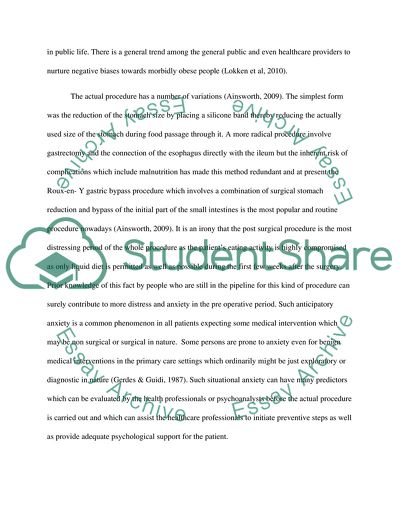Cite this document
(Anxiety Prior to Gastric Bypass Surgery Case Study, n.d.)
Anxiety Prior to Gastric Bypass Surgery Case Study. https://studentshare.org/medical-science/1732941-anxiety-prior-to-gastric-bypass-surgery
Anxiety Prior to Gastric Bypass Surgery Case Study. https://studentshare.org/medical-science/1732941-anxiety-prior-to-gastric-bypass-surgery
(Anxiety Prior to Gastric Bypass Surgery Case Study)
Anxiety Prior to Gastric Bypass Surgery Case Study. https://studentshare.org/medical-science/1732941-anxiety-prior-to-gastric-bypass-surgery.
Anxiety Prior to Gastric Bypass Surgery Case Study. https://studentshare.org/medical-science/1732941-anxiety-prior-to-gastric-bypass-surgery.
“Anxiety Prior to Gastric Bypass Surgery Case Study”. https://studentshare.org/medical-science/1732941-anxiety-prior-to-gastric-bypass-surgery.


